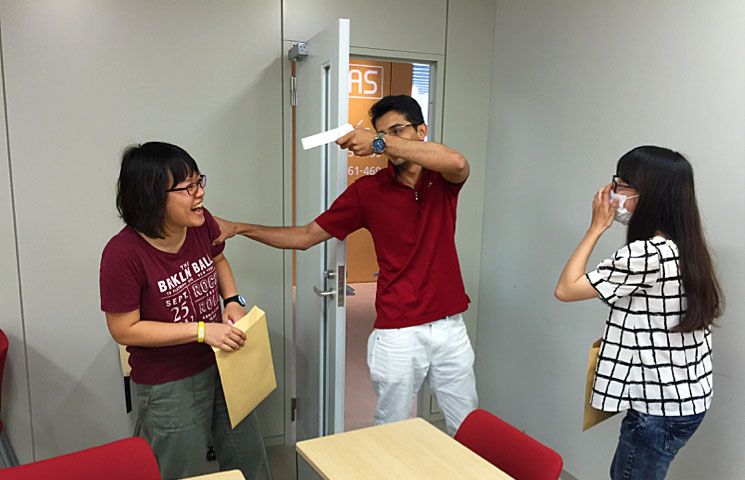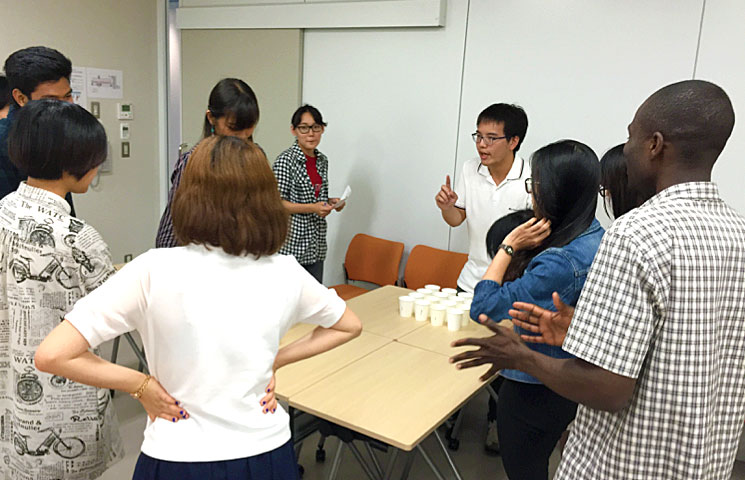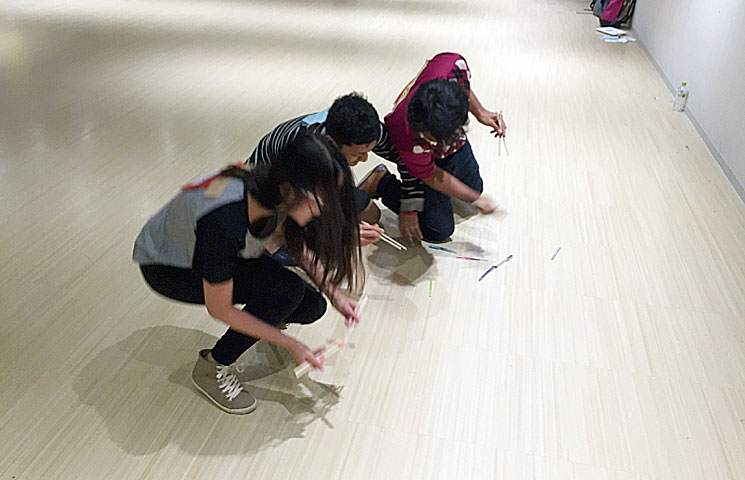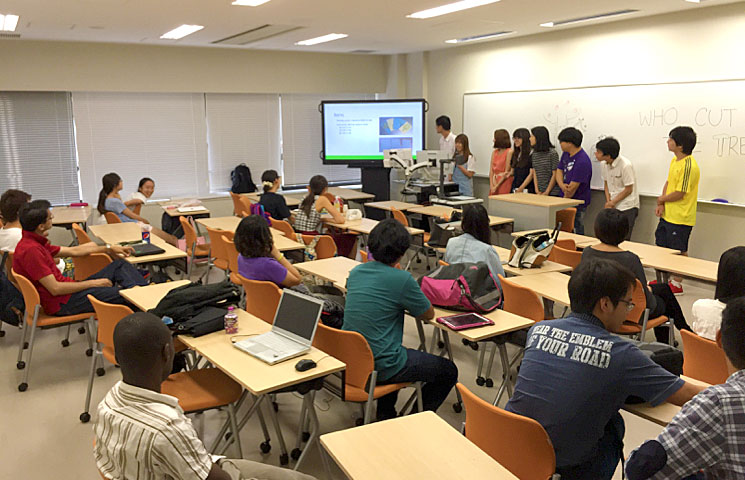News
2015.10.20
Deepening understanding of societal systems through designing games in ‘Gaming Simulation Method’
The College of Policy Science has introduced a course called ‘Gaming Simulation Method,’ where students can deepen their understanding of societies and policies by playing simulated games and also designing and developing games by themselves. Simply speaking, Gaming Simulation refers to designing games that incorporate simple models induced from important components of societal (systems). Through playing the games, players can experience how systems work by taking up roles as actors that they themselves would not be in the real world such as presidents of companies, etc. This course provided opportunities to students to learn the relations between games and societal issues through playing games focused on disaster mitigation, decision-making, international trading etc. In the latter part of the course, students designed games by themselves and played them with other registered students.
One group designed a game on drug trafficking, where police tried to arrest drug dealers while drug dealers try to profit from their trade without the knowledge of the police, through this game, players experienced how black markets function. Another group designed a game that incorporated economic systems such as capitalism and socialism, participants were then able to experience the effects of several economic systems and events such as company mergers. One other group designed a game on illegal logging based on the treasure hunting game using cards to represent timber as a resource. And yet another group made a game for disaster management where players learned to experience the importance of preparing alternatives to overcome catastrophic events.
In the designing of gaming simulations, it is prudent not only to make the games fun but also to develop games that have the potential of giving deep insights into the complicated societal structures implement simple models into the games. The project had profound impact on the students because they could learn this process by experience.
This course is designated as ‘strongly recommended’ for exchange students of AIMS (ASEAN International Mobility for Students) Program and was taken not only by students in CRPS (Community and Regional Policy Studies major) but also the exchange students from Indonesia and Thailand under the AIMS program.
Picture: Scenes in playing Gaming Simulation

Police trying to arrest drug dealer

A mini game for players to get as much as resource

Players picking up pens for acquiring resource

Presenting importance of a game